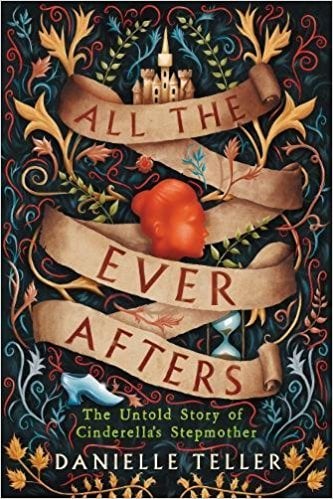Earlier this summer at the Stanford Bookstore, Danielle Teller, a physician-turned-author, discussed her new young adult fiction novel, “All the Ever-Afters.” In the text, Teller reimagines the classic tale “Cinderella” by introducing Agnes, Cinderella’s “evil” stepmother, as the sole protagonist.
Unlike Cinderella, who is seen in popular culture as the epitome of a rags-to-riches success, Teller’s stepmother does not embody the one-dimensional motif of “live evil, do evil,” nor does she behave in the way that most detested fairy-tale antagonists do. Instead, Agnes is portrayed as a woman who struggled as a child and endured poverty at an early age.
The plot of the book follows how Agnes, as a stepmother, has to come to terms with not only her new familial role, but also with the fact that her stepchild is simply adored by everyone — unlike her own two daughters.
Agnes feels that she did “not set out to write the princess’s history, but [her] own, the only tale [she has] the authority to tell.” As a child, Agnes had been a peasant born into serfdom where she was an apprentice at Aviceford manor. She had to toil through tedious chores such as doing the laundry, cleaning the fireplace or cooking food. Often, she “wanted to collapse from exhaustion” and confesses that “[she] felt very sorry for herself in those moments.” As Agnes grows and matures into a woman, she finds herself in a difficult position: fending for her young daughters with no husband and a small business, where she was constantly “plagued by doubt and [her] own excruciating loneliness.”
In a turn of events, Agnes later rises to prominence by marrying Sir Emont Vis-de-Loup and, therefore, becomes the stepmother of his daughter, Ella. Agnes struggles to reconcile the roles of her new life while balancing the aspects of life she faced before becoming wife to Emont. Throughout this journey, she witnesses the many stages of a relationship between a stepmother and daughter — there are times where Agnes and Ella alike cannot stand each other, there are times where Ella snobbishly turns down Agnes’ attempt of motherly love and there are also times where the two come to love each other. As Agnes reflects on her life and everything she has endured to be the person she is, she confesses that “[she] may not have deserved it, but [she] is happy.”
At the book event, Teller read aloud the prologue of “All the Ever-Afters,” and provided a brief synopsis of her book, while also answering questions about her writing process.
Teller said that the hardest part of writing “All the Ever-Afters” was reconciling her novel with the original classic, but she was able to the create a spin-off on the tale by writing the story through the step-mother’s perspective, while still remaining true to the childhood tale that we all revel in.
Teller had the idea to pen her first fiction novel when she herself adopted the role of a stepmother.
“I realized that being a stepmother was a more complicated relationship than I might have thought,” Teller said. “There is some natural friction in this type of relationship. So it got me thinking when I was struggling in the early years of my new role. Stepmoms have a bad reputation in fairy tales. I started wondering whether that might not have something to do with the fact that the relationship is pretty fraught.”
With this understanding, Teller realized that she wanted to introduce a shift in perspective that was different from the original tale of Cinderella, by writing a story through the eyes of an unusual protagonist.
“I started thinking, what if these fairytales were stories that were born of real life relationships — of real, flawed human beings where no one is the good or bad guy, but really just misunderstood?”
Although “All the Ever-Afters” is Teller’s first time venturing into the realm of fiction, she is no stranger to the world of writing. Before “All the Ever-Afters,” Teller wrote “Sacred Cows,” her debut nonfiction novel which she co-authored alongside her husband, Dr. Astro Teller.
“Sacred Cows” divulges and dissects the common assumptions and misconceptions that arise with marriage and divorce, offering a bright and sympathetic view toward individuals who are struggling in the midst of their marriages.
Teller’s journey into the world of fiction has not come to an end, however. She revealed that she has finished writing a new book and is currently editing her next project.
“[My new story] takes place in Toronto during a blackout,” said the writer. “One of the main characters is a woman in her 60s who has two kids. [Her] daughter-in-law is the other main character. The idea is that, although both these characters are separated by day and age, they have these very parallel lives and these characters meet and form a bond.”
Contact Vidhima Shetty at vidhima ‘at’ gmail.com.
